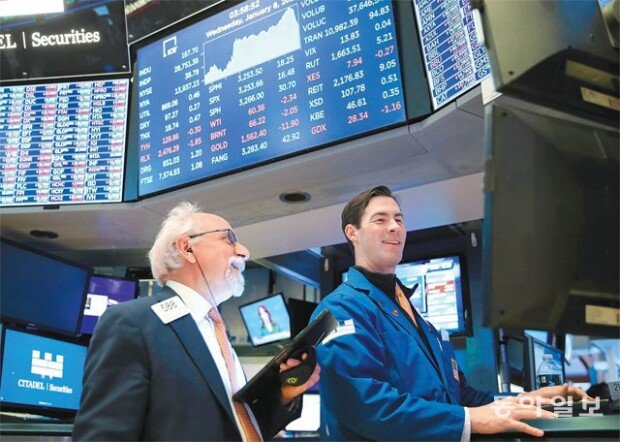Apple’s market cap reaches 2 trillion dollars
Apple’s market cap reaches 2 trillion dollars
Posted August. 21, 2020 07:34,
Updated August. 21, 2020 07:34

U.S.-based Apple has become the second company in the world whose market cap exceeds over two trillion dollars, following Aramco, a state-owned oil company of Saudi Arabia. The record figure is higher than last year’s GDP of South Korea and Italy, which were ranked respectively in the 12th and eighth positions in the world. Accordingly, the voices concerned about the soaring stock prices of large IT companies, including Apple, are also growing.
Apple’s stock prices rose to 468.65 dollars on Wednesday (local time) during the Nasdaq's trading hours with an increase of 1.4 percent compared to the previous day, surpassing the baseline for the market cap of two trillion dollars, which is 467.77 dollars per share. However, it closed at 462.83 dollars with an increase of 0.13 percent. Aramco, which surpassed the market cap of two trillion dollars for the first time in the Saudi Arabian stock exchange in December, also did not maintain the baseline price at the market closure. The oil company’s current market cap is 1.3 trillion dollars, which is far less than Apple’s.
Apple, which was founded in 1976, exceeded the market cap of one trillion dollars in August 2018. However, it only took two years to reach the two trillion-dollar mark. Due to the COVID-19 outbreak, its market cap fell below one trillion dollars in March but doubled in just five months. As more people are working from home due to COVID-19, the company’s untact businesses – iCloud, Apple Music, Apple TV+, and Apple Arcade – recorded good sales performance. As the company split stock recently, it has become more accessible to small investors as well.
Apple has not launched a new star product in a while, unlike the time that company reached a one trillion dollar-market cap when the sales of iPhones led the stock price increase. Meanwhile, as a super-size company like Apple practically monopolizes the market and prevents the entry of competitors, more and more people are calling for stronger regulations.
Some investment banks on Wall Street, including Morgan Stanley, said the current development resembles the dot-com bubble in the early 2000s and recommended to lower dependence on technology shares. The Wall Street Journal also predicted that if the aftermath of economic slowdown affects overall industries, IT companies will also find themselves at risk.
Jae-Dong Yu jarrett@donga.com







